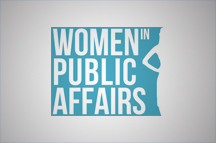Research published today by Women in Public Affairs (WiPA) and Opinium Research reveals that the Public Affairs industry isn’t working for many women. WiPA is calling on the industry to do more. Download the Report.
1 in 4 (27%) women in the sector say they have experienced sexual harassment at work. The results found that nearly 1 in 3 women (30%) rated the industry as poor at protecting and helping women deal with sexual harassment, with only 4% rating the industry as good. This is unacceptable and needs to be tackled.
There is a myriad of areas the industry needs to make significant improvements on to promote an inclusive culture and help women succeed at work. Nearly two-thirds (60%) of women feel their company is not transparent about progression and pay, and nearly half (44%) believe their pay differs from their male counterparts in their company.
Results also show that over half of women (56%) feel uncomfortable asking about a company’s maternity policy in an interview. Furthermore, while 4 out of 5 women (80%) said they were allowed to work from home, a third (36%) of those only feel comfortable doing so in ‘exceptional circumstances’.
In response to the findings, WiPA is today launching a campaign to raise industry standards. The campaign will include roundtables with senior leaders to discuss the results and create deliverable actions. WiPA will also be adapting their offer to ensure events, training and resources are best tailored to members to support the progression of women in the industry.
WiPA Chair, Laura Sainsbury said: “This research should be shocking but sadly it isn’t. Our research has shown not only that the industry must do more to modernise and support women to reach the top – from advertising salary bands to normalising modern working trends such as flexible working – but it also needs to address other diversity issues such as race or socio-economic background. This is an urgent wake up call for our industry and we look forward to working with partners on our campaign to improve industry standards and will be announcing a series of roundtables over the next few months.”
Chair of the APPG on Women and Work, Gillian Keegan MP said: “Sadly the themes in this research are not just found in the Public Affairs industry, the Women and Work APPG has found that women in numerous workplaces need modern policies and practices to help them reach the top. However, it is crucial that an industry like Public Affairs which plays a role in forming legislation has diversity at every level.”
Opinium Chief Executive, James Endersby said: “While the Public Affairs industry ticks the boxes for women being offered more flexible working options and being interviewed by more gender-balanced panels, there is still a long way to go. With half of women in PA believing the industry is only average at supporting women's progress, Public Affairs has an opportunity to address these issues, starting with better training and more transparency on pay, progression and maternity leave. The male cohort within Public Affairs can help - by supporting the 1 in 2 women who experience discrimination in the industry, and confronting sexual harassers, as still a quarter (27%) of women in PA admit to having experienced sexual harassment in the industry”
The survey received 263 responses from women working in the industry between 8th August and 27th September 2019 and the breakdown revealed a lack of diversity with 83% of respondents identified as White and 23% from a minority group.
The socio-economics also revealed that most women in the industry are based in London (78%) and that over half (55%) went to a comprehensive school, with 24% attending private school. Furthermore, 99% have an undergraduate degree, with 43% having higher than an undergraduate.
When asked about barriers in the industry and what needed to change, many women described a “laddish” culture or a persisting “old boy’s network”. One respondent said “it's still a very 'macho' industry, which seems to require out of hours networking and ego”. There were also calls for “more profile to female leaders as role models” and “women to be taken as seriously as men” as well as changes to ways of working.













